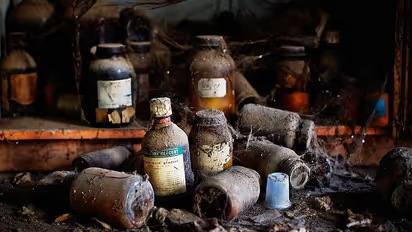Bhopal gas tragedy: Revisiting Padma Shri Abdul Jabbar's 3-decade-long crusade for justice
'Jabbar Bhai' lost his family to the world's worst industrial disasters. He himself suffered from lung fibrosis and lost 50% of his vision. Yet, Abdul Jabbar never stopped fighting for justice till he breathed his last in November, 2019.

The horrific night of December 2, 1984, will remain etched in India's memory. Deadly methyl isocyanate gas leaked from Bhopal's Union Carbide India Ltd. pesticide plant, claiming over 20,000 lives and leaving lakhs affected severely disabled for life with conditions like lung cancer, kidney and liver failure and eye disorders.
One such victim was a construction worker named Abdul Jabbar, who suffered lung fibrosis and lost 50 per cent of his vision in both eyes due to the 27 tonne gas leak. Unfortunately, he also lost his mother, father and brother to the after-effects of the disaster.
The incident, however, changed Abdul Jabbar's life forever. He decided to fight for justice for the victims and survivors of the Bhopal gas tragedy until he breathed his last on November 14, 2019.
The government of India recognized Abdul Jabbar's three decade-long fight and awarded him the Padma Shri posthumously. Here is the gritty crusader's lesser-known story:
Abdul Jabbar's fight began on the night of the gas tragedy itself. Following the world's worst industrial disaster, Jabbar, 28 years old then, took the injured to the local government hospital for treatment. He also helped local authorities to take the dead bodies away from the site of the disaster for their post-mortem. "It was the day when humans ran in desperation," he once said.
In 1987, Abdul Jabbar started an advocacy group for the victims, survivors and their families - Bhopal Gas Peedit Mahila Udyog Sangathan. He routinely conducted demonstrations that sought not just compensation but also employment opportunities. The slogan of his first campaign was the famous 'Khairat nahi, rozgar chahiye', which called for work instead of mere rations for the victims and survivors.
It was only in 1989 that Abdul Jabbar tasted a narrow victory. The government then reached a meagre 470 million USD settlement with Union Carbide, to which the Supreme Court agreed. However, only 105,000 victims were recognized for compensation.
Ten years later, the apex court ordered the Indian government to disburse a further Rs 1,503 crore compensation and made an admission that over 570,000 claimants were to be compensated.
In his three-decade-long fight, Abdul Jabbar went from pillar to post fighting for justice for victims, survivors, and families. Along with a group of activists, he conducted several protests, filed court petitions regularly that sought enhanced medical rehabilitation for victims, and, above all, the prosecution of Union Carbide's local officials. Jabbar also opened a skill development centre to help those suffering from serious medical ailments live a worthy life.
Abdul Jabbar also ensured that public memory of the horrific gas leak, how victims continued to suffer and the government’s inability to hold those responsible accountable, particularly by letting Chairman of Union Carbide Warren Anderson escape India, remained fresh. He organized meetings every Saturday at the Yadgan-e-Shahjahani Park to keep the victims going.
The Bhopal gas tragedy is one of the darkest chapters of post-Independence India. The horrific incident has scarred generations.
Till he breathed his last on November 14, 2019, Abdul Jabbar tirelessly fought for better compensation, medical and economic rehabilitation of those whose lives changed on that night of horror.
India must remember and never forget Padma Shri Abdul Jabbar's relentless fight for justice for the victims and survivors of the world's worst industrial disaster.